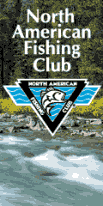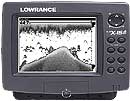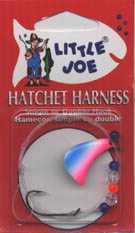
Free 90 day Risk free trial offer click
here





















|
Staging Transitional Fall Walleyes
By Sam Anderson
The late summer, is a time of transition. In the Upper Midwest,
that transition usually starts toward the end of August and goes through
October. The days become noticeably shorter, the nights cooler and
the first hint of fall is in the air. In our natural lakes, a corresponding
process has begun. Weedbeds have begun to die off, water temperatures
are cooler, food production has slowed dramatically and the little remaining
forage is eagerly sought by predators.
Fish activity is also different at this time of year. Largemouth
bass begin to form larger schools and start feeding voraciously.
Northern pike move in from larger schools and start feeding from their
deep open-water locations and actively cruise weed flats. And walleyes
shake off their summer lethargy and begin to enter shallower feeding waters.
This sets the stage for all kinds of fishing. In fact this is
the "staging time of year." These fish are in a process of transition
also. These conditions work together to create one of the year's
peak fishing times. It's as if the game fish suddenly realize the
long winter is approaching and know they have to chow down in preparation
for the hard times ahead. The most important aspect is that all of
this will occur before the colors really form on the trees. The "staging"
is not identifiable with a specific weather occurrence. This "staging
period" comes as the trees start to show a sign of ending of the summer
and just before the major frost starts to blanket the ground. The
dramatic changes are going on under water, but on the land the clues are
much more subtle.
For example, fishing had been poor for about three weeks and it didn't
seem this evening would be any different than the previous ones.

Lowrance’s
new X-15 |
As I motored across the lake I noticed from my Lowrance
X-15 depth finder that the water temperature had fallen from the low
60's to the mid 50's. I didn't give it much thought, but what I didn't
realize is that this was enough to start the fish on their "staging" process. |
 Lindy's
Lindy's
Fuzzy
Grubs
|
I motored over to
a small point where I had caught a few walleyes during the summer months
and I cast out a 1/8 ounce Fuzzy Grub jig tipped with a minnow. |
As the splash subsided I felt that familiar tug on the line and I quickly
set
the hook. I reeled in a nice two pound walleye and released it.
I hooked up the minnow again, because it wasn't too badly destroyed and
cast to the exact same spot. Just like the first cast as the splash
subsided I hooked another walleye. In the next fifteen minutes I caught
10 walleyes in this exact same
spot releasing all. These fish were aggressive, if one walleye
got off another latched onto the bait and I used the same minnow two or
three times. It really didn't seem to matter what condition
the minnow was in, they just kept hammering the jig and minnow combination.
The subtle difference was the water temperature and the structure that
they related to. The fish congregated in this area to feed and fatten
up for the beginning of the autumn season. They came together to
hunt in schools and possibly to move into deeper water as the season started
to progress. Just because this time of year offers excellent fishing,
that doesn't mean you're going to succeed every time. First of all
you have to find the fish. Just as during the spring and summer months,
the weedbeds will still be a key location for the fish, as long as the
weeds are still green. Just as you worked the weedbeds in the summer
months, seek out and
concentrate on points, turns, pockets, and other changes in the weedline.
Rocks will also attract fish, especially rocky shorelines, as this
is where the fall spawning bait fish will spawn. If you find an area
where rocks and weeds meet or are intermixed, work it over thoroughly.
Fish like an edge. Fish are not randomly scattered through any body
of water, be it a pond, lake, large reservoir, stream, river, ocean, bay
or slough. Fish are always found in specific areas. These areas
will vary with the species of fish and the environment in which they live,
but are based on typical factors that involve every living thing - food,
oxygen levels, temperature, pH, light levels, structure and schooling
tendencies.
We know that fish and animals use staging areas to migrate from feeding
source to a place of resting. When I am on the water in autumn I
tend to look for funneled down areas, because it is a great place to look
for walleyes as they pass through in search of food. Necked down
areas, saddles between island and land, narrows, and even break lines are
great places to begin looking for active walleyes in the fall. Breaklines
are areas where the floor of the lake or river drop-off from shallow water
to deeper water. The breakline is a transitional area. Walleyes
have a tendency to move up into the shallows on cloudy, windy days or in
the evening and then slide back into the depths to rest.
To catch walleyes in a staging area there are many presentations an
angler should consider.
 |
Little Joe spinners with a crawler harness, or a Lindy rig are two
great ways to start to look for walleyes. Minnows are at an all time
high in the fall of the year and the offering that you provide for them
should be something different. Stick to crawlers and leeches or artificial
baits that resemble big minnows. The bigger
the minnow bait the more the walleyes will be interested in it.
This time of year walleyes want to fatten up for the upcoming winter months
and they look for the largest food source they can swallow. Minnow
baits like Storm Lightin’ Shad have a large body and give off a lot of
wobble that transmits to the walleye that this food source is large and
lazy. |
Try also to get these minnow baits in colors that represent the food source
the walleyes are feeding on. Shad colored baits and crawdad color
baits have been dynamite for me this year. With the cool weather and the
beginning of school around the corner we all know that fall is not far
behind. The leaves are beginning to turn colors and the birds and
ducks are on the wing. The call of the fields and the woods are sirens
to many an outdoorsman. The angling pressure is no longer present and the
fish must feed in order to store fat for the winter. The boat should
remain out and ready for the warm, "Indian summer days" to come. If you
do get onto a great fall bite or if you want to discuss some fishing tactics
drop me a not on the web at www.samanderson.com.

Walleyes Inc. website is maintained
by Randy
Tyler Fishing the In-Fisherman Professional Walleye Circuit, Masters
Walleye Circuit and the Team Walleye Circuit. All rights reserved.Copyright
1999/2001
Please visit these site sponsors
Daiichi/Tru-Turn Hooks,
Lindy
Little Joe,
R-A.M Mounting Systems,
Ranger
boats, Mercury Marine, Bedford
Sales , Hamby's Beaching Bumpers,
Goldeneye
Marine products, Panther
Marine Products, Webfoots body
sock, Bait Rigs Tackle
|




